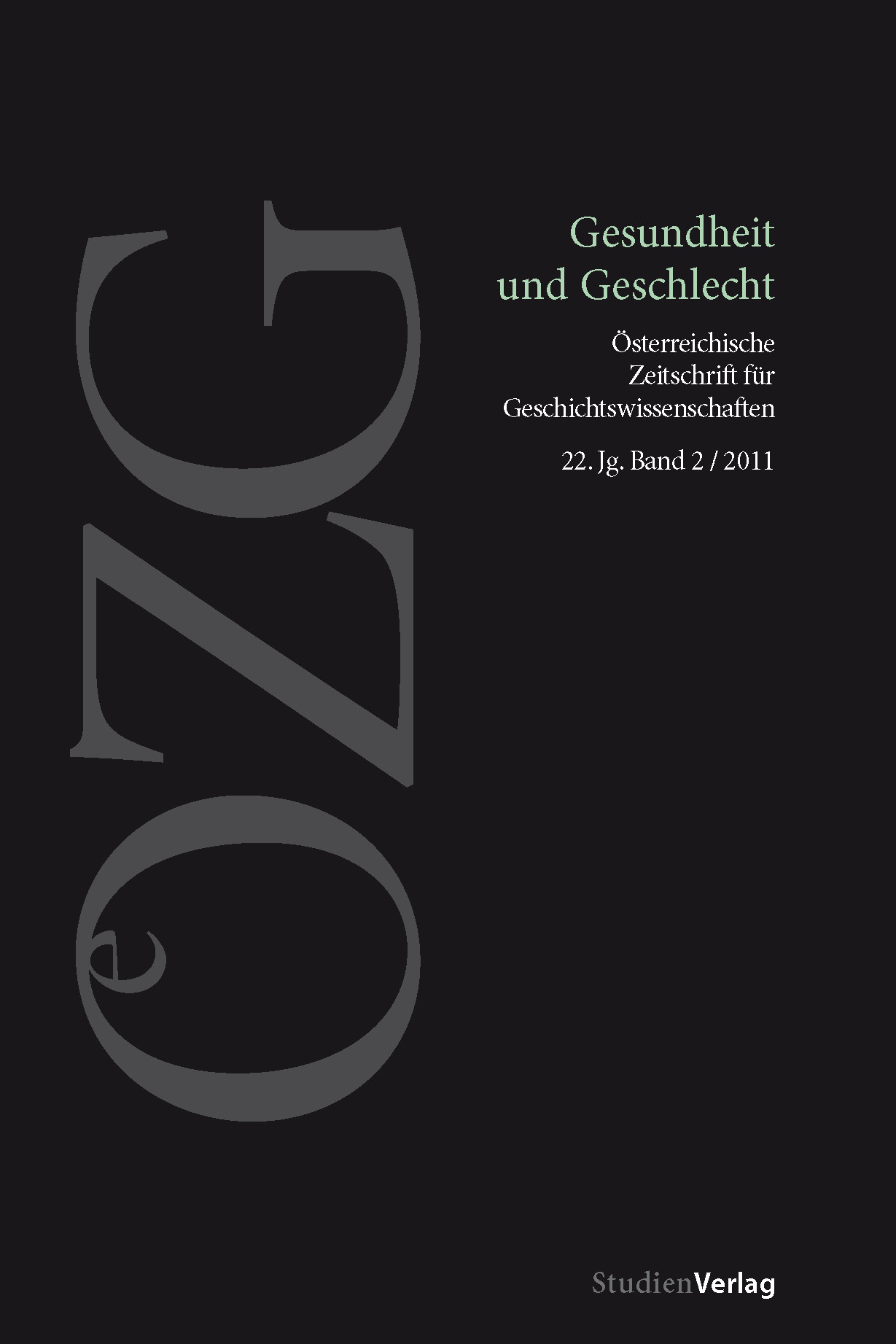„daß seine Mannschaft gantz unvollkommen sey“
Impotence in the early modern period – discourses and practices in Germany
DOI:
https://doi.org/10.25365/oezg-2011-22-2-3Keywords:
impotence, societal discourse, masculinity, quantitative research, marriage courtsAbstract
Many ways of how we think and live today developed in the early modern period. If we look at masculinity and impotence for example, we see a broad societal discourse, which includes for the first time lower classes. Additionally, independent scientific interest emerges that over time takes on more and more rational traits of medicine and civil law. Next to the files from the marriage courts these contemporary works belong to the most important sources in an inquiry into impotence in the early modern period. An over view on aspects, terms, and sources on impotence in world history is followed by the first quantitative analysis of early modern sources in scientific research. The practice of separation and the medical practice are delved into with examples from the 17th and 18th centuries. Thus, it can be shown that everyday life with and scientific disputes on the problem of impotence deter mined each other and also how this worked; not only scholars, theologians, and judges negotiated among themselves what the term impotence held for, but also the population took part in the discussions in different ways.


